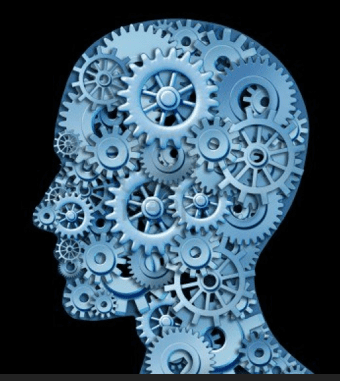 While conducting research on how decisions are made during high consequence events I came across a term I’d never heard before – “tacit knowledge.”
While conducting research on how decisions are made during high consequence events I came across a term I’d never heard before – “tacit knowledge.”
Once I learned what it was it quickly became evident that I possessed it… and I didn’t know it. In fact, every first responder who has developed expert-level knowledge and skills has tacit knowledge and they use it all the time.
They simply aren’t aware of it and there’s a good explanation why.
What is tacit knowledge?
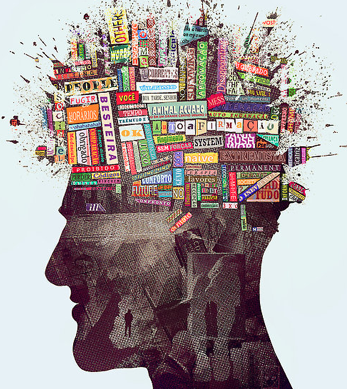 Tacit knowledge is the collection of life’s experiences, education and training that reside outside conscious awareness. It’s the knowledge one possess that helps guide intuition, a vital component to making high-stress, high-consequence, split second decisions.
Tacit knowledge is the collection of life’s experiences, education and training that reside outside conscious awareness. It’s the knowledge one possess that helps guide intuition, a vital component to making high-stress, high-consequence, split second decisions.
As you go through life you purposefully acquire a lot of information. You also acquire as much, if not more, information unintentionally. Your senses are very perceptive to environmental clues and cues and they’re always processing and analyzing what is happening around you. While you may not know it, your brain is recording and storing some of those experiences. That is part of your tacit knowledge.
As you consciously navigate through life you are also perceiving and storing information. Some of this information you can recall quickly and flawlessly. Some if it is difficult to remember. The information stored, but outside of the ready recall region, is in part, tacit knowledge.
As you have similar experiences over and over again, your brain stores patterns of information from those experiences that become routines your brain can call up that will guide your decision making. Those stored patterns are, in part, tacit knowledge.
This is what allows you to know that the restroom in a restaurant is going to be located at the front of the building or the back of the building and rarely, if ever, on the sides of the building. Past experiences, stored as patterns of knowledge, coupled with observations of the current environment, allows your intuition to guide you.
Magic Knowledge
 During my “Brain Science Meets Public Safety: What have we learned?” program I talk a lot about tacit knowledge because of how vital it is to the decision making process of expert-level first responders and how challenging it can be for non-expert first responders to understand how their expert counterparts can make such good decisions with what appears to be so limited information and doing so while under the stress of time compression.
During my “Brain Science Meets Public Safety: What have we learned?” program I talk a lot about tacit knowledge because of how vital it is to the decision making process of expert-level first responders and how challenging it can be for non-expert first responders to understand how their expert counterparts can make such good decisions with what appears to be so limited information and doing so while under the stress of time compression.
When interviewed, even the experts can struggle to explain how they know what they know. Because the knowledge is tacit (unconscious) the process of locating it, comprehending it’s application to the current situation and the resulting intuition that guides the decision all lay outside conscious awareness. This makes the knowledge appear to be mystical – perhaps even magical.
The curse of knowledge
 Most novices yearn to be taught by the experts on how to make good decisions under stressful conditions. Yet many experts struggle with being able to explain how they know what they know. They can suffer from the curse of knowledge – possessing so much expertise that it becomes second nature and difficult to articulate to others.
Most novices yearn to be taught by the experts on how to make good decisions under stressful conditions. Yet many experts struggle with being able to explain how they know what they know. They can suffer from the curse of knowledge – possessing so much expertise that it becomes second nature and difficult to articulate to others.
Some college professors I had while an undergraduate suffered from the curse of knowledge. They taught at a level that, I am confident, made perfect sense to them but was way over the heads of almost everyone in the class. When asked simple questions, the professors would either admonish the inquisitive youth or launch into an explanation that was so complex that it only made understanding that much more difficult.
Clue and cue processing
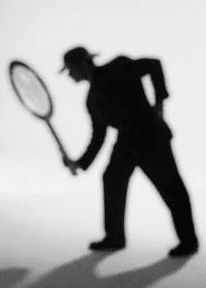 It is a relatively easy process to teach novices about the clues and cues present at a fire: Building conditions (construction and decomposition), smoke conditions (color, volume, velocity and density), fire conditions (color, volume, velocity and density), etc. But it is much more difficult to teach novices the meaning of clues and cues that are no present. Negative clues and cues – those not present – can be critically important to understanding what is going on. Because of their limited knowledge and experience, novices won’t be able to comprehend the negative clues and cues. But the experts will be able to and that will help the expert make better decisions.
It is a relatively easy process to teach novices about the clues and cues present at a fire: Building conditions (construction and decomposition), smoke conditions (color, volume, velocity and density), fire conditions (color, volume, velocity and density), etc. But it is much more difficult to teach novices the meaning of clues and cues that are no present. Negative clues and cues – those not present – can be critically important to understanding what is going on. Because of their limited knowledge and experience, novices won’t be able to comprehend the negative clues and cues. But the experts will be able to and that will help the expert make better decisions.
Developing tacit knowledge
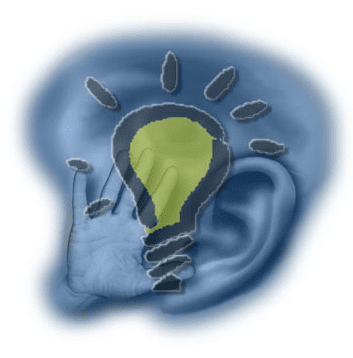 The only way to develop tacit knowledge is exposure to new experiences (i.e., learning) and repetitive exposure to existing experiences (i.e., practice). Novices can advance the development of tacit knowledge by training in realistic and repetitive scenarios and by exposure to lessons of past successes and failures (near-miss reports, case studies, line of duty death reports, videos, etc.).
The only way to develop tacit knowledge is exposure to new experiences (i.e., learning) and repetitive exposure to existing experiences (i.e., practice). Novices can advance the development of tacit knowledge by training in realistic and repetitive scenarios and by exposure to lessons of past successes and failures (near-miss reports, case studies, line of duty death reports, videos, etc.).
The more realistic the experience is made for the novice, the more likely the experience will seat into unconscious knowledge. For example, being told about an incident third-hand where details are limited will not be as effective as being told about the incident first-hand from the person who can provide elaborative details. Reading a magazine article on an incident may not be as effective as reviewing a case study that includes the backstory and comprehensive details. Reviewing a near-miss report may not be as effective as creating a simulated training scenario that recreates a near-miss or line-of-duty death event to allow novices to process the full experience in real time (with consideration for safety of the participants).
Losing tacit knowledge
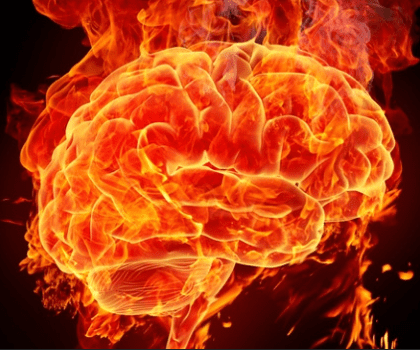 Can you lose your tacit knowledge? The short answer is yes. It is well documented that human memory is bolstered through periodic re-exposure to knowledge. Periodic refreshers help keep the connections to tacit knowledge strong.
Can you lose your tacit knowledge? The short answer is yes. It is well documented that human memory is bolstered through periodic re-exposure to knowledge. Periodic refreshers help keep the connections to tacit knowledge strong.
This is why it is so important that first responders adopt a mantra of being lifelong learners and never stop training, even when they think they have “mastered” their craft. Repetition improves recall.
Chief Gasaway’s advice
 There are several notations I want to make from this discussion. First, novices need to understand and respect their limited decision making abilities in dynamically changing environments because they lack tacit knowledge. There may be few things as dangerous as a first responder with two years of experience who thinks they know it all.
There are several notations I want to make from this discussion. First, novices need to understand and respect their limited decision making abilities in dynamically changing environments because they lack tacit knowledge. There may be few things as dangerous as a first responder with two years of experience who thinks they know it all.
Second, experienced responders need to understand they possess more knowledge than they are consciously aware of and they are using that knowledge in their decision making. This can cause an expert responder to become frustrated with a novice responder because what appears obvious to the expert (common sense) may not be so apparent to the novice.
Finally, experts should adopt a mindset of wanting to help the novice tap into the expert’s intuition. This may, initially, be very frustrating to the expert because they will find themselves being asked questions that they have no idea how to answer – because the answer lays outside their conscious awareness. The expert who can display patients in this process will become a prized instructor.
Action items
1. Discuss how you use tacit knowledge each day. Some examples may include: How you are able to seemingly read the thoughts of others or how you are able to drive a vehicle using mostly unconscious knowledge.
2. Discuss examples where you may have tapped into your tacit knowledge on emergency scenes and how it helped improve your decision making.
3. Share an example of a time when you observed someone else using tacit knowledge to make a decision at an emergency scene.
Share your thoughts and ideas in the “Leave a Reply” box below.
___________________________________________________________
The mission of Situational Awareness Matters is simple: Help first responders see the bad things coming… in time to change the outcome.
Safety begins with SA!
___________________________________________________________
If you want to send me incident pictures, videos or have an idea you’d like me to research and write about, contact me. I really enjoy getting feedback and supportive messages from fellow first responders. It gives me the energy to work harder for you.
Thanks,
Email: Rich@SAMatters.com
Phone: 612-548-4424
www.RichGasaway.com (personal website)
Facebook Fan Page: www.facebook.com/SAMatters
LinkedIn: Rich Gasaway
Twitter: @RichGasaway
YouTube: SAMattersTV
iTunes: SAMatters


Pingback: Tacit Knowledge (From Simulation) Adds to Situational Awareness |
In an operational setting the time to capture this knowledge driven from experiences in the field is limited. Creating “capture routines “ is often left to individuals. What an important subject!